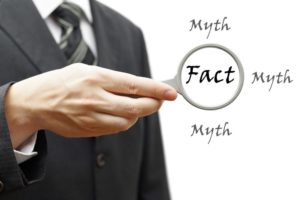By Sandra Bass, Director of the Public Service Center at U.C. Berkeley
One evening in early March, before we were all sent home to shelter, I got a call from my mother. She told me that her cousin and her cousin’s husband had been rushed to the emergency room. Both were diagnosed with pneumonia. Shortly after entering the hospital my mother’s cousin died. She was 88. Her husband spent weeks linked to life by a ventilator. Tests later revealed that both were positive for the Coronavirus.
Death by an infectious disease is an exceptionally lonely experience. When my grandmothers died some years ago family members sat by their bedsides for hours, soothing them as best we could. By contrast, no one was allowed to be close to our mother’s cousin, to hold her hand, gently knead her aching muscles, or express words of love that were deeply felt but may never have been shared. In her final hours she did speak to a family member by phone. Her last words, spoken between labored and fragile breaths were, “Remember….me.”
The Coronavirus has wound its way across the globe, devastating families, cities and even countries in its path. Along its journey it has unveiled truths about the state of our values, relationships and societies that are breathtaking in both their beauty and their brutality.
The sounds of sheltered Italians singing together from their homes in the medieval town of Siena reminded us that our desire to connect transcends our ability to share physical space. But there has been a much less human and compassionate response to the crisis that reveals a willingness by some pundits and politicians to sacrifice elderly people on the altar of the ‘American way of life.’ Dan Patrick for example – the Lieutenant-Governor of Texas – framed this fatal bargain like this:
“No one reached out to me, as a senior citizen to ask, are you willing to take a chance on your survival in exchange for keeping the America that all Americans love for your children and grandchildren? And if that’s the exchange, I’m all in.”
Patrick’s belief that some lives are expendable to save our ‘way of life’ was not born during this pandemic. It has a long history. In fact this callous logic, which veteran freedom fighter Ruby Sales has called “Empire Consciousness,” lies within the very foundations of the America he believes we are all so eager to preserve.
Empire Consciousness prizes domination for the chosen few above all else. It thrives by seeking to snuff out genuine human connection, collective narratives, historical memory and embodied spirituality, and to supplant these qualities with a social order that deifies the constructs of whiteness and wealth concentrated at the very top.
The self destructive and dehumanizing contradictions of this belief system are embedded in the very birthing of America – it was slave-owning patriot Patrick Henry who emphatically declared “Give me liberty or give me death,” even as he denied dozens of enslaved human beings their freedom.
Like many politicians of his day and ours, Henry betrayed his deepest values to preserve the reigning economic and social order. Even though he was a vocal opponent of slavery for years after the American Revolution, it appears he didn’t free a single slave during his lifetime, or even on his death, since he could not fathom, in his words, the “general inconvenience of living here without them.”
The enterprise of Empire Consciousness aimed to erase the humanity of enslaved Africans and crush the souls of the oppressed. It also warped the oppressors too, since the souls of Patrick Henry and his brethren were surely fractured by their choices.
But enslaved Africans and their descendants were not crushed or erased; instead, they became liberatory geniuses in ‘finding a way out of no way’ as the old adage goes. Across the span of centuries, they found a way to keep the internal fire of future liberation aflame, even when there was no evidence that freedom would ever come.
To dream of freedom while suffering under the lash and lust of slave owners requires a level of consciousness about your worth and the worth of your people that runs counter to everything that Empire thinking holds dear. It rejects the notion that certain lives are expendable in order to prevent the “general inconvenience” of the privileged few.
In defiance of the hopelessness that systems of oppression deliberately cultivate in order to maintain command and control, those operating from this plane of consciousness understood that liberation was not bound to a body or dependent upon the graces of a totalitarian power.
Freed from the constraints of time, place, and corporeal reality, the potential for this kind of “mountaintop consciousness,” as Ruby Sales calls it, can be discovered within each individual spirit. It is activated when grounded in something larger than ourselves, and gains strength when we gather together as fellow travelers. It triumphs when we act collectively and courageously, and is carried through the ages on the whispered wisdoms of our elders.
By bearing witness and sharing legacies, and through their devotion and their admonishments – even in the lessons learned from witnessing the travails of unmoored lives – our elders bring forth the wisdoms that sustain us. At their best, their lives stand as a testament to the evolution of our human journey and inspire future generations to grow beyond the limits of their imagination.
Therefore, the call to sacrifice our elders in order to protect the economy – and further the ambitions of politicians and the wealthy who benefit from it – is far from the noble calling Patrick claims. Instead, it shows a heartless disregard for the lives of those who are no longer seen as worthy contenders in the fictive race for the survival of the fittest.
This is an age-old tactic that has been used throughout American history to hobble the possibilities of liberation, by attempting to destroy our kinship with the past. But it failed then and it will fail now, if we stand united against the destructive Empire narrative, and have the courage to birth something new.
It is ironic that an illness that takes our lives by stealing our breaths also invites us to consider what needs to be breathed into life in our time. For some of us the experience of sheltering has been chaotic and frightening. For others it has seemed like a positive solitude, or a time of reflection and reconnection. Wherever this moment finds us, the possibility of reimagining new ways of being with and for each other is very real.
After the ill winds of illness have ceased to blow, will we choose to ventilate our world with justice and compassion? When the sting of grief for lost loved ones has subsided, what wisdoms will we bring forth and what new stories will we embrace?
When the fruits of what we did with our time in this moment are laid before another generation, will we be remembered as brave and true? I hope so. We must reject the Empire and stand hand in hand, hearts open, to usher in the break of a new day.
Sandra Bass has served as the Associate Dean of Students and Director of the Public Service Center at the University of California, Berkeley
Note: The views expressed in this article are the author’s, and not the position of Intellectual Dose, or iDose (its online publication). This article is republished from Open Democracy under a Creative Commons license.



